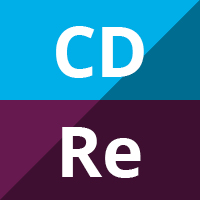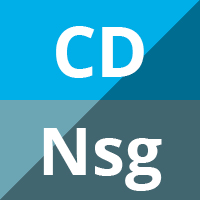
Reduced or modified dietary fat for preventing cardiovascular disease
Abstract Background Reduction and modification of dietary fats have differing effects on cardiovascular risk factors (such as serum cholesterol), but their effects on important health outcomes are less clear. Objectives To assess the effect of reduction and/or modification of dietary fats on mortality, cardiovascular mortality, cardiovascular morbidity and individual outcomes including myocardial infarction, stroke and […]

Fibrinogen depleting agents for acute ischaemic stroke
Abstract Background Fibrinogen depleting agents reduce fibrinogen in blood plasma, reduce blood viscosity and hence increase blood flow. This may help remove the blood clot blocking the artery and re-establish blood flow to the affected area of the brain after an ischaemic stroke. The risk of haemorrhage may be less than with thrombolytic agents. This […]

Interventions for age-related visual problems in patients with stroke
Abstract Background The prevalence of eye problems increases with age and, consequently, so does the level of visual impairment. As the incidence of stroke also increases with age, a significant proportion of stroke patients will have age-related visual problems. It is possible that the effect of interventions for age-related visual problems may differ in the […]

External counterpulsation for acute ischaemic stroke
Abstract Background External counterpulsation (ECP) may improve cerebral blood flow, and it has been proposed as a potential therapy for patients with ischaemic stroke. Objectives To assess the efficacy and safety of ECP for acute ischaemic stroke. Search methods We searched the Cochrane Stroke Group Trials Register (June 2011), Cochrane Central Register of Controlled Trials […]

Surgical decompression for cerebral oedema in acute ischaemic stroke
Abstract Background Large cerebral infarction has a high case fatality. Despite the use of conventional medical treatments such as hyperventilation, mannitol, diuretics, corticosteroids and barbiturates, the outcome of this condition remains poor. Decompressive surgery to relieve intracranial pressure is performed in some cases, although evidence of any clinical benefits has not been available until recently. […]

Edaravone for acute ischaemic stroke
Abstract Background Neuroprotection is a promising therapeutic strategy for the treatment of acute ischaemic stroke. Edaravone is a neuroprotective agent that has been widely used in China, and several studies have suggested that it may be beneficial in acute ischaemic stroke. Objectives To assess the efficacy and safety of edaravone for acute ischaemic stroke. Search […]

Antiplatelet agents and anticoagulants for hypertension
Abstract Background Elevated systemic blood pressure results in high intravascular pressure but the main complications, coronary heart disease (CHD), ischaemic strokes and peripheral vascular disease (PVD), are related to thrombosis rather than haemorrhage. Some complications related to elevated blood pressure, heart failure or atrial fibrillation, are themselves associated with stroke and thromboembolism. Therefore it is […]

Interventions for disorders of eye movement in patients with stroke
Abstract Background Eye movement disorders may affect over 70% of stroke patients. These eye movement disorders can result in difficulty maintaining the normal ocular position and difficulty moving the eyes appropriately. The resulting functional disabilities include a loss of depth perception, reduced hand-to-eye co-ordination, marked difficulties with near tasks and reading and reduced ability to […]

Non-pharmacological interventions for caregivers of stroke survivors
Abstract Background A substantial component of care is provided to stroke survivors by informal caregivers. However, providing such care is often a new and challenging experience and has been linked to a number of adverse outcomes. A range of interventions targeted towards stroke survivors and their family or other informal caregivers have been tested in […]

Corticosteroids for acute ischaemic stroke
Abstract Background The majority of strokes are due to cerebral infarction. Ischaemic cerebral tissue tends to develop cytotoxic oedema which, if the blood-brain barrier is disrupted, may be followed by vasogenic oedema. Large infarcts can develop life-threatening massive oedema. Early treatment with corticosteroids could theoretically help reduce both cytotoxic and vasogenic oedema and so improve […]

